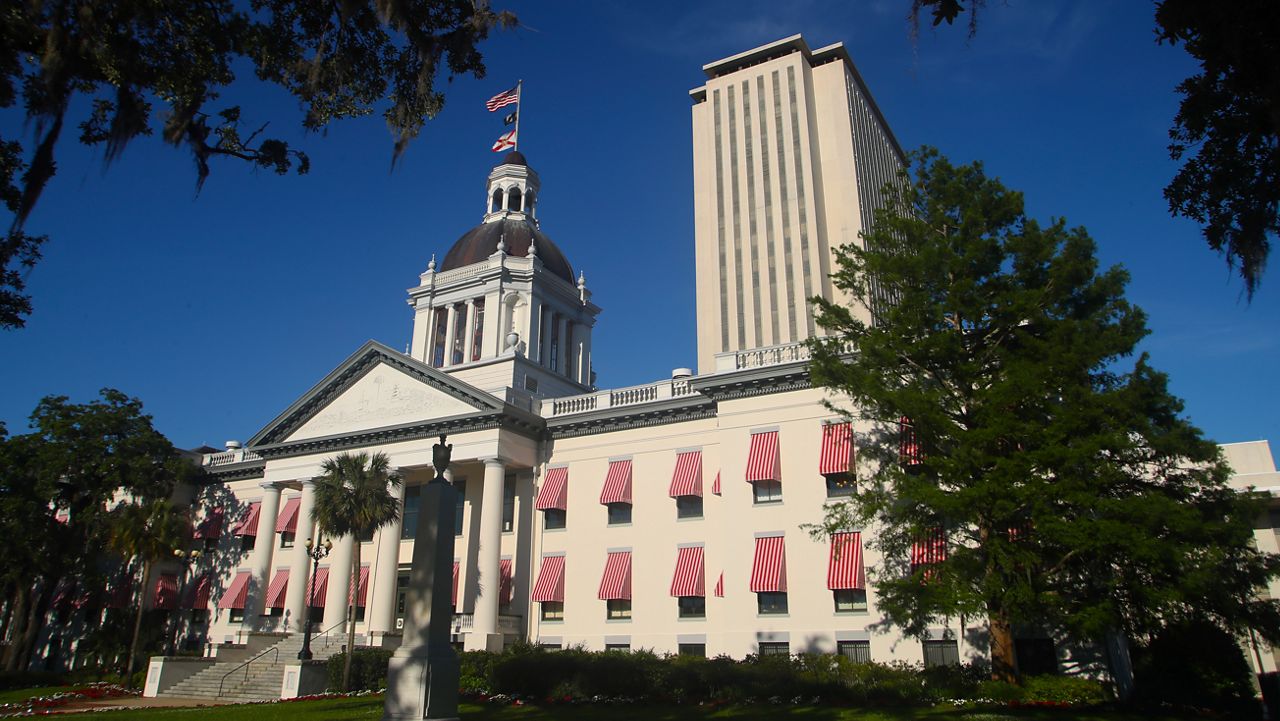UMATILLA, Fla. — About 70-80% of the farmers growing Florida’s signature crop, citrus, say they have seen falling production because of citrus greening.
Now researchers at the University of Florida are hoping to help Florida farmers improve the production of citrus and specialty crops by creating the Crop Transformation Center.
What You Need To Know
- Experts say that 70-80% of the farmers growing Florida’s signature crop, citrus, have seen a reduction of production because of citrus greening
- Researchers at the University of Florida say they are hoping to help Florida farmers improve the production of citrus and specialty crops by creating the Crop Transformation Center
- According to the University of Florida, in 2019, more than half of citrus farmers surveyed say citrus greening affected 100% of the acres they farm
“We’re listening, we’re dedicated. We have no doubt that we are going to make them successful," said center director Charlie Messina. "We’re not taking failure as an option.”
According to the University of Florida, the center was made possible thanks to a $2 million initiative by university President Ben Sasse.
A cure for citrus greening is something Florida farmers have been wanting for more than a decade. The Florida Department of Citrus says that citrus greening first showed up in Florida in 2005. By June of 2006, information from the department shows that the disease had spread to 12 Florida counties.
That is something fourth-generation farmer Michael Graham, of Graham's U-Pick Farms, said he's seen decimate groves in Lake County.
“It was at 150,000 acres of orange groves out in Lake County," he said. "Now there’s less than 5,000."
The disease — caused by bacteria spread by the Asian citrus psyllid — is now found throughout Florida. Once a tree is infected, experts say there is no cure.
“That little thing right there is what causes all your problems with your citrus greening,” said Graham, pointing to the insect that can carry the bacteria.
Having the amount of family history in the farming industry, Graham said growing crops is in his blood.
“My dad, we grew citrus, we grew watermelon, we grew anything we could,” he said. “It’s been about 15 years since we’ve had it full-blown. Our trees have been steadily declining over the last 15 years. We’ve grown citrus out here for over 100 years. It’s just gotten to where it’s almost impossible to do."
Graham said he is no stranger to the new reality of citrus farming.
According to the University of Florida, in 2019, more than half of citrus farmers surveyed said citrus greening affected 100% of the acres they farm. Another quarter reported that the disease has impacted 80–99% of their groves.
Data show that only 3% of farmers reported that citrus greening had affected less than 40% of their citrus groves.
While Graham’s new cash crop is peaches, he continues growing citrus to keep the family tradition alive.
Graham said citrus greening doesn't just affect the trees, but the farmers who grow them.
“My dad, he won’t even like to come out no more cause he grew up in the citrus industry," Graham said. "It’s devastated him."
Researchers at the University of Florida Crop Transformation Center say they are working to fight the disease so future farmers don't have to deal with citrus greening.
According to UF, the center's objectives are:
- Developing rapid genome improvements for citrus
- Leveraging artificial intelligence to discover new gene functions to identify targets for genetic modification
- Use clear communication and engagement with regulatory agencies to increase the transparency of the approval process
- Infuse social science to ensure rapid adoption of new technologies among growers and the public
- Effectively communicate to the public
“We’ve long recognized that breeding is the Swiss Army knife of agricultural science. With the right genetic crop modifications, we can solve almost any challenge in growing food," Scott Angle, UF’s interim provost and senior vice president for agriculture and natural resources, said in a statement. "The center will allow us to much more effectively employ biotechnology tools to increase the speed and accuracy of our plant breeding."
“We already have the nation’s leading university plant breeding program, and the center will turbocharge those efforts," the statement continues. "We’ll start with citrus because that is a commodity in crisis."









